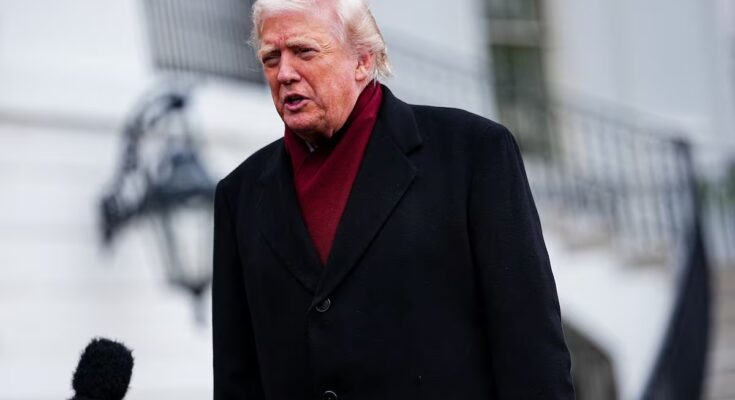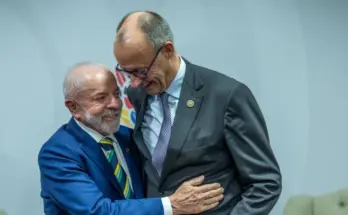The President of the United States, Donald Trump, gave another twist to the negotiations for the war in Ukraine this Saturday. The controversial 28-point peace plan unveiled this week, which President Volodymyr Zelensky had until Thursday to accept, is not the final offer for Kiev, he said.
“No, it’s not my final offer,” he told reporters as he left the White House to go to Andrews Air Force Base to play golf. “We would like to achieve peace. It should have happened a long time ago. The war between Ukraine and Russia should never have happened. If I had been president then, it would never have happened. Now we are trying to end it. One way or another we have to end it.”
Trump indicated on Friday, after declaring that next Thursday, the 27th (Thanksgiving Day in the United States) would be “the appropriate time” for Zelensky to give his response on the peace plan, that the Ukrainian president “will have to appreciate” the proposal and accept it. Otherwise “they can continue to fight,” he said. But the understanding was that, in that case, the United States would withdraw its support.
This Saturday’s statements, however, seem a little more conciliatory. They come after the American spoke to German Chancellor Friedrich Merz on Friday and to British Prime Minister Keir Starmer on Saturday. It also happens in parallel with the news that his Secretary of State, Marco Rubio, and his personal envoy for peacekeeping missions, Steve Witkoff, will be in Geneva this Sunday to discuss the plan with a delegation sent from Kiev.
Also in Geneva is the Secretary of the US Army, Dan Driscoll, who this week became one of the negotiators of the plan and the man in charge of communicating to the Ukrainian government the contents of the proposal, drawn up between Witkoff and Kirill Dimitriev, Russian President Vladimir Putin’s trusted man.
The plan caught European foreign ministries by surprise, who tried to coordinate at full speed to respond to a proposal completely unbalanced towards Moscow’s interests. European leaders attending the G-20 summit this weekend in Johannesburg found the proposal in its current form insufficient and needs “further work”.
The project involves a series of Ukrainian concessions that Zelenskyj has always assured that Kiev would not admit under any circumstances, without it appearing that Moscow would have to give anything in exchange other than a cessation of fighting. The 28 points require, among other things, that Ukraine cede control of the eastern Donbass region to Russia, where Kiev still controls part of the territory, and agree to reduce the size of its army. Furthermore, there will be no NATO troops on its territory and it will have to renounce joining the Alliance in the future. But, on the other hand, it will have security guarantees from the United States and Europe.
White House spokeswoman Karoline Leavitt said any type of peace plan “must offer security and deterrence guarantees for Ukraine, Europe and Russia” and offer economic incentives to both Kiev and Moscow. “This plan was designed to reflect the reality of the situation and determine the best possible scenario in which everyone wins and in which both sides gain more than they have to give up,” he said.



